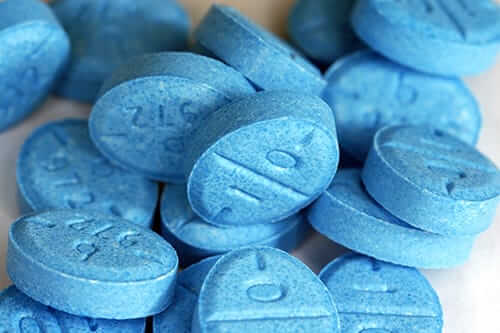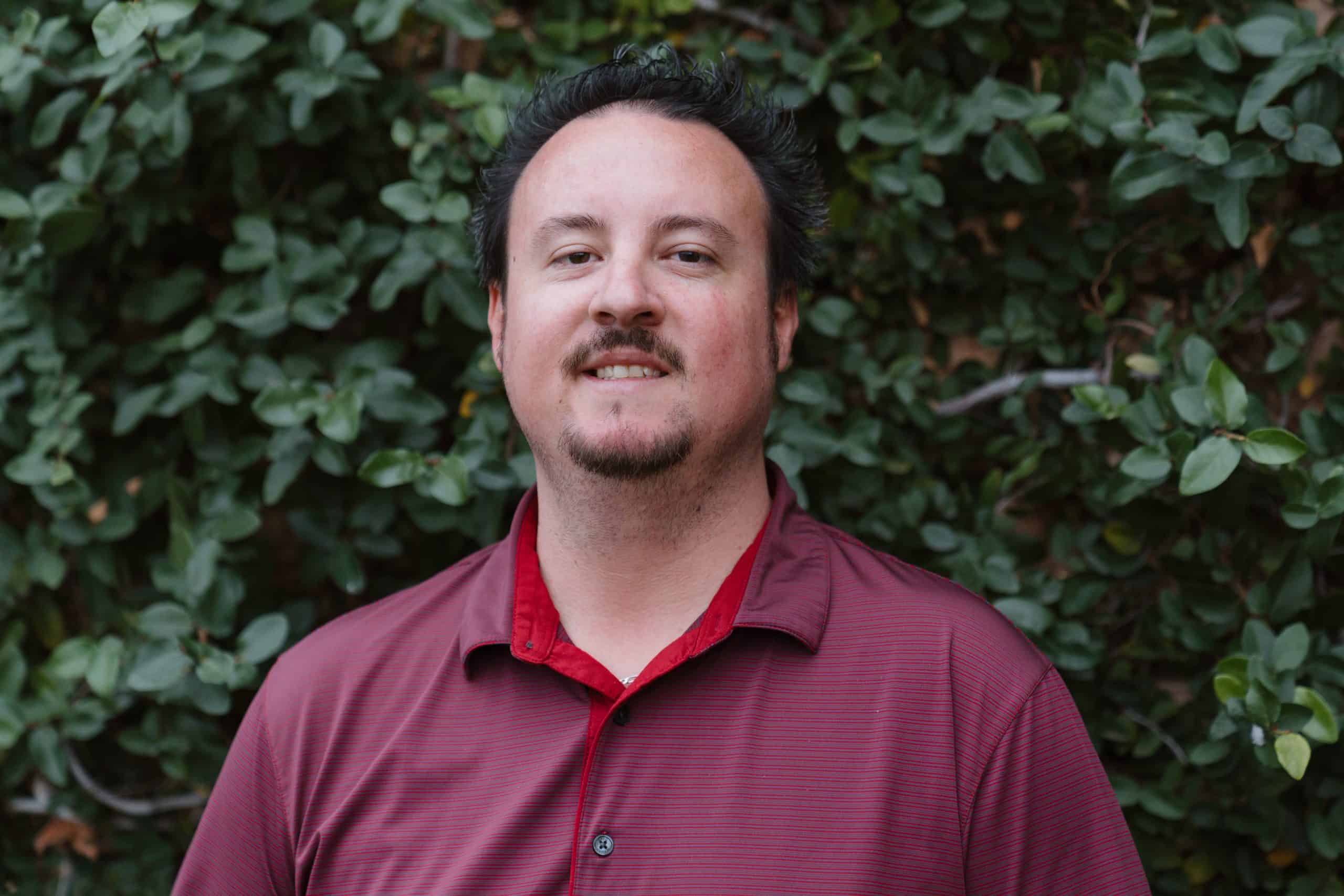Adderall Addiction Treatment in Arizona

Many people associate addiction with alcohol or illegal drugs. These days, however, prescriptions drugs are also commonly misused and abused. This includes a wide range of prescription stimulants such as Adderall.
Just about any mind-altering substance can be addictive. After all, addiction is a complex mental health condition brought on by a variety of factors. Family history, previous abuse or trauma, undeveloped coping skills, and even an individual’s brain chemistry can play a role.
Between 2022 and 2023 in Arizona, more than 1.2 million residents aged 12 and older admitted to illicit drug use at least once a month.
Prescription drugs often do not have the stigma of other substances like cocaine, meth, or alcohol. After all, they are prescribed by a doctor and have a therapeutic purpose. However, when these drugs are not used as directed, they can be habit-forming and negatively impact your life.
Do you think you or a loved one may be suffering from Adderall dependence? Has it taken over your life? Are you noticing changes in your career, personal relationships, and health? You are not alone. Many people have slid down the slippery slope of prescription drug addiction. While many people do it unintentionally, others find the high of certain pills alluring and even life- consuming.
Use this guide to understand this addiction and how Adderall addiction treatment can help you regain control of your life.
What Are Amphetamines Such As Adderall?
Prescription stimulants containing amphetamines such as Adderall are usually used to treat attention-deficit hyperactivity disorder (ADHD) and some sleep disorders. Adderall contains a combination of dextroamphetamine and amphetamine to achieve this goal. The therapeutic intent of these drugs is to increase attention and alertness while decreasing impulsivity. For some people, it may also help regulate sleep cycles.
Children and adults with ADHD and similar disorders often experience debilitating lack of focus, fidgeting, and frequent outbursts. These behaviors may limit how they are able to learn and function in daily life. It is not known exactly why these drugs help those with ADHD, but they seem to reduce the need for stimulation and improve concentration.
Amphetamines affect the way brain chemistry works. They raise levels of dopamine which affects the reward centers of the brain. Norepinephrine is also increased, which can regulate blood pressure, heart rate, breathing, and blood sugar.
People who use these drugs often report increased energy that helps them focus, stay alert, and manage daily tasks effectively. In fact, numerous studies have found that stimulants help people with ADHD improve cognitive performance and executive functioning, including skills that involve self-regulation and mental control.
It’s important to note that people with ADHD have different brain chemistry than others. People who are not prescribed Adderall may not have the same deficits with hyperactivity, concentration, and other behaviors. The drug doesn’t have the same effect on people who do not have ADHD as it does on those who have a legitimate need for the drug. People taking it recreationally or without a prescription may experience a surge of the brain’s pleasure chemicals, mainly dopamine, which creates a euphoric high. The boost to the brain’s pleasure center can easily lead to misuse and addiction.
How Common Is Adderall Use And Abuse?
Adderall can be an effective medication for treating ADHD and some sleep disorders. In fact, over 4 million people use this medication to treat their symptoms. Most prescribed users are adolescents and young adults.
Just like other prescription medications, stimulants can be misused and abused by people with and without a prescription. Generally, people who are prescribed medication for ADHD can use it safely without risk of addiction if they adhere to the dosage and schedule their doctor recommends. However, when people begin to take stimulants more often or in higher doses than prescribed, addiction may become a problem.
Some people consider stimulants to be study drugs. Many young adults believe that Adderall can increase focus and energy while cramming for midterms, big projects, or other activities that require intense concentration. In fact, prescription stimulants may be abused by 4 percent of older teens and young adults. Other studies suggest even higher levels of abuse.
Unfortunately, many young people fail to realize the immediate dangers and long-term effects of using powerful drugs. As a result, they can put their physical and mental health at risk while changing their brain chemistry, which can lead to addiction.

Can You Get Addicted To Adderall?
Simply put, yes. Adderall is highly addictive. It is a Schedule II controlled substance. This category refers to prescription drugs that have a high risk for abuse, which may lead to severe psychological or physical dependence when not used as directed by a doctor. Other drugs in this category include methadone, oxycodone, and fentanyl.
As with other prescription drugs such as opiates, Adderall addiction can happen whether the drug is prescribed legitimately or obtained illegally. It can be difficult to determine when regular use becomes abuse with prescribed medications. When people without ADHD purchase stimulants illegally or otherwise obtain them, it is usually clear that abuse is occurring. Unfortunately, when the drug was prescribed by a doctor and was once helpful for treating ADHD or other issues, it can be hard to tell when to get help.
For people who do not have ADHD, any use at all without a prescription is considered misuse, although that doesn’t necessarily indicate an addiction. However, stimulant addictions can develop quickly and without warning. The pressures for young adults to succeed in school and other pursuits can make stimulants very alluring, and many of the people who misuse this drug are under the age of 25. They may feel that it is great for an energy boost, quick rush, or opportunity to cram for an important project, but the high potential for addiction far outweighs any temporary benefits.
Those who habitually misuse Adderall may have difficulty quitting the drug. In fact, even people who take the drug as directed have to be weaned off of it to avoid uncomfortable withdrawal side effects. These effects are caused by the extreme drop in the body’s dopamine levels that occurs when the drug is discontinued. In turn, your brain has to adjust to the change. Although the brain is adaptable, you will probably go through a period of withdrawal until your brain recovers.
Sometimes known as a crash, signs of withdrawal can include:
- Changes in sleep patterns such as insomnia or sleeping too much
- Anxiety or irritability
- Fatigue or lack of energy
- Mood swings
- Difficulties concentrating
- Intense cravings for the drug
- Nausea or vomiting
- Stomach aches or cramping
- Intense hunger
- Muscle aches or tremors
- Panic attacks
- Phobias
- Suicidal thoughts
Withdrawal symptoms can last a few days to a few weeks. While some may experience only mild withdrawal, others find detox so unpleasant that they cannot stop taking the drug. It often depends on the length of time it was used and the dosage that was taken.
What Are The Signs Of Adderall Addiction?
People who misuse Adderall may show certain “red flags” about their abuse.
Here are some prescription drug addiction signs you may see in yourself or a loved one if you are legitimately prescribed the drug but are developing an addiction:
- Needing more of the drug to get the same effects
- Taking larger or more frequent doses than prescribed
- Frequently requesting increased dosages from physicians
- Visiting multiple doctors or pharmacies to obtain the drug
Some of the first physiological symptoms you may notice when abusing Adderall are:
- Nausea
- Anxiety
- Bouts of extreme talking or chatter
- Restlessness or difficulty sitting still
- Periods of fatigue
- Insomnia or changes in sleep patterns
- Decreased appetite
- Digestive problems like constipation or diarrhea
As addiction progresses, the signs may become even more alarming. These are serious symptoms that often need professional attention. In some cases, they can be life-threatening. They include:
- Chest pains
- High blood pressure
- Aggressive behaviors
- Periods of being “manic” or unable to deal with excessive energy
- Elevated body temperature
- Paranoia
- Dizziness
- Convulsions
- Hallucinations
- Seizures
In addition, people battling any kind of addiction often have common signs that suggest they may need help. If you notice these signs in a loved one or even yourself, it might be time to seek treatment:
- Withdrawing from family and friends
- Interacting with a new peer group
- Irregular mood swings
- Unexplained difficulties with finances and spending
- Secretive behaviors like lying or “disappearing” for periods of time
- Changes in sleep patterns or daily schedule
- Losing interest in favorite hobbies or leisure activities
- Changes in physical appearance like weight gain or loss
- Compulsive need to maintain the supply of drugs
- Physical or mental distress when not using
- Engaging in high-risk behaviors while “high” or trying to obtain drugs
- Trying to quit or abstain from drugs without success
Addiction can take over your life and negatively impact the way you interact with the world. Sadly, addiction is a progressive disease that only gets worse with time unless it is treated.
If you read over these signs and symptoms and have serious concerns about your own or a loved one’s drug use, know that help is available. Unfortunately, many people make excuses and avoid getting treatment. Denial, fear, and ambivalence often play a role. These attitudes are often a part of addiction and can delay the help you need to get sober. Of course, ignoring your problem will only make things worse in the long run.
Remember, drugs change the way your brain works. The more you use drugs, the more your brain and body become dependent on them. Those who finally get treatment often find that they didn’t realize how dire their situation actually was. Only after starting treatment do they realize how they put their career, family, and life in jeopardy.
What Is The Treatment For Adderall Addiction?
Treatment for this type of addiction often requires a variety of therapies that address withdrawal symptoms, root causes, and thought patterns that may lead to addictive behaviors. There is no single addiction treatment that helps everyone. Getting help for addiction involves a complete overhaul in the way a person thinks, feels, and interacts with the struggles of daily life.
Psychotherapy, like cognitive behavioral therapy, often provides the framework for rehab. A therapeutic relationship with a qualified counselor allows you to discuss and troubleshoot the issues that could have lead to addiction.
Many people find that using a multidimensional approach works best. Adderall addiction treatment centers often use a holistic approach for people who are battling addiction. Simply managing withdrawal side effects is only the first step of a true recovery. You need to treat the underlying causes and develop new skills that will allow you to cope with life without using drugs. For many people, this involves a variety of therapies.

Treatment centers like Pinnacle Peak Recovery offer holistic drug addiction treatment for Adderall and other prescription drugs. This means that you are treated as a whole person instead of an addiction diagnosis or list of symptoms. As counselors get to know you, they find out what therapies are best for your recovery. For example, an exercise or yoga program may aid your desire to improve physical health. If problems with your spouse or family tend to fuel your addictive behaviors, intensive family therapy may help. If stress about performance at work contributes to your stimulant abuse, cognitive behavioral therapy may be used as a part of your treatment so you can learn to better manage pressure.
New experiences often lead to changes in perspective and healthier habits. Recreation and adventure therapy provide opportunities to step outside your comfort zone and discover personal strengths you may have neglected while abusing drugs.
Simply choosing to quit may not be enough. If you desire a successful recovery, you need to find an effective treatment center that can help you through all your needs and struggles.
Can I Get Adderall Addiction Treatment Near Me?
In Scottsdale, Arizona, our Adderall treatment center blends trusted psychotherapy approaches with evidence-based holistic treatments. Pinnacle Peak Recovery offers a supportive, confidential environment where you have the opportunity grow and thrive. We offer a variety of treatments including men’s and women’s programs.
Pinnacle Peak Recovery accepts individuals from all over the country. No matter where you are located, the opportunities for healthy living and the year-round sunny Arizona climate may be just what you need to make positive changes in your life.
Many individuals struggling with addiction need help throughout their recovery, so we offer a full continuum of care. From primary treatment to alumni services, we make sure you have the necessary support. Whatever your struggles, we find the most appropriate program to help you succeed in your recovery.



What Our Valued Patients Say
Find Long-Term Recovery From Substance Use Right Here in Arizona Through Pinnacle Peak
Substance use disorders can make the future feel uncertain, but it doesn't have to stay that way forever. No matter how daunting it may feel, healing is always an option. Our team has years of experience with substance use disorders and will work with you to make sure you find the long-term success you deserve.
Whether this is your first time or your 12th time seeking healing, our team will meet you where you are with compassion and evidence-based practices. Through our Proven Process we'll show you the way to healing. Give us a call now to get started.
Clinical Excellence | Compassionate Care | Family Feel

